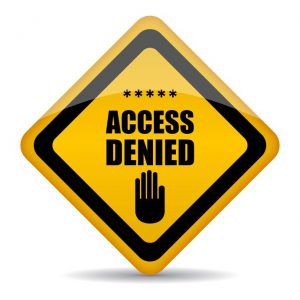
Homeowners do not have an absolute right to use the common areas and amenities in a community association. This is because they are bound by the community’s governing documents, which typically include provisions on paying assessments and complying with use restrictions. If homeowners fail to pay assessments for a certain period of time or violate the governing documents, the association may have the right to suspend their access to the community’s common areas (e.g., its recreational facilities or parking areas) until the delinquency is paid and/or the violation is corrected. Suspending these privileges can be an effective enforcement tool for associations, especially in the summer months when homeowners are more likely to use the community’s common areas and amenities.
When can a homeowner’s use rights be suspended?
Some governing documents provide for automatic suspension when a homeowner is delinquent on any payment to the association. If this is allowed, the association is probably not required to send a separate notice to the homeowner about the suspension. On the other hand, some governing documents do require notice from the association prior to the suspension. Here, the association’s declaration or bylaws may outline the specific notice requirements and/or hearing rights associated with the threatened suspension. And in most cases, if the suspension authority is based on a homeowner’s violation of the governing documents (e.g., failing to maintain their home), the association will probably be required to send some type of advance notice prior to the suspension.
How long does the suspension last and to whom does it apply?
Typically, a suspension will continue indefinitely until the delinquency is paid or the violation is corrected. However, in some governing documents, a suspension may be limited to a specified time period. Additionally, the suspension not only applies to the homeowner, but it usually also applies to the homeowner’s family, tenants, guests and/or invitees.
Can a community association suspend a homeowner’s right to park on the common areas?
Many condominiums and townhomes offer parking spaces only on the common areas. The association’s governing documents may permit the association to suspend a homeowner’s right to park vehicles on the common areas if the homeowner is delinquent in their assessments and to tow/boot cars parked in violation of the suspension.
If access to the parking area is through a common gate, access privileges for the gate may be suspended. Please note, pedestrian access to and from the homeowner’s unit/lot must be available at all times. Associations that have this enforcement tool available should proceed with care by providing ample notice to the delinquent homeowner of the association’s intent to exercise this right, complying with any applicable local ordinances and regulations regarding towing. However, associations should also consider any extraordinary medical or physical needs of the homeowner that may preclude this type of suspension. It is important to consult with the association’s attorney prior to exercising this right to make sure it is available for the community and if so, to ensure that all notice and procedural requirements are met.
Are there any exclusions that prohibit a community association from suspending a homeowner’s common area use rights?
Yes, a homeowner’s bankruptcy filing halts the community association’s ability to suspend use privileges. Ultimately, the automatic stay afforded by the homeowner’s bankruptcy filing may prohibit the association from taking any action with regard to the home, including the suspension of common area use rights.
In sum, community associations should take comfort in knowing that, if available, the suspension of common area use rights can be an effective enforcement tool that may prevent the cost and necessity of filing a lawsuit or taking other more drastic measures to bring about the same results.
